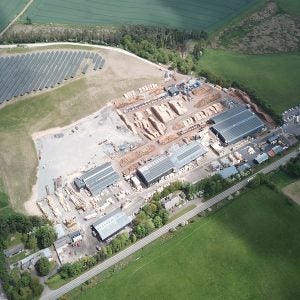A new government report says timber windows are more environmentally friendly than PVCu.
The Department of the Environment, Transport and the Regions undertook the study to inform debate on PVCu and examine the risks and environmental impacts of the material.
The comparative environmental performance of wood and PVCu windows, which formed part of the report, showed timber as superior across a wide spectrum.
Timber windows were found to consume less energy than PVCu over a 30-year life cycle. The PVCu system consumes over three times more coal and oil, mainly as a result of the production phase, while energy consumption for wood was attributable to production of paints for coatings.
The wood system was found to generate 43% less waste than PVCu throughout its life cycle. PVCu generated more waste during production plus through the lack of degradation in landfill.
Greenhouse gases, air acidification, ozone depletion and depletion of non-renewable resources were all lower for timber windows, but photo-chemical oxidant formation was higher for wood as a result of regular painting.
Director of the British Woodworking Federation Kevin Cubbage said: ‘It’s very much in line with what we expected, that wood when used for windows is the preferred material over PVCu. But I would have expected the environmental performance gap between PVCu and timber to be bigger than has actually been given in the report.’
The PVCu industry has found itself under increased pressure. The Ospar agreement, signed by 16 European countries, lists ‘suspect chemicals’ it wants phased out, including many in PVCu products.






